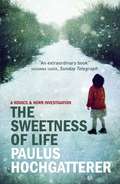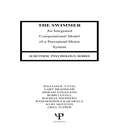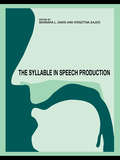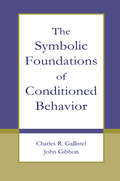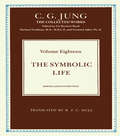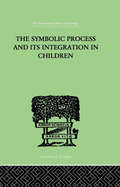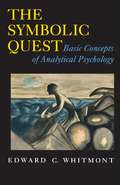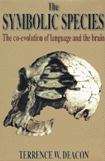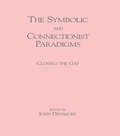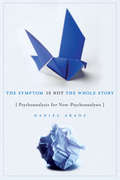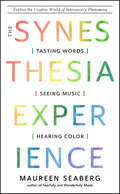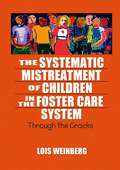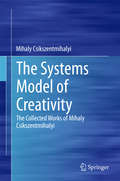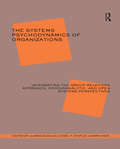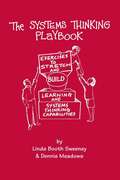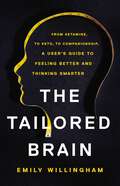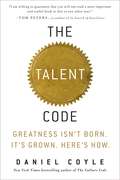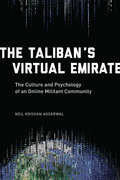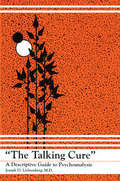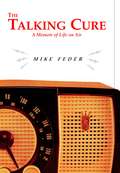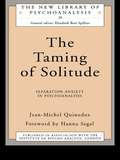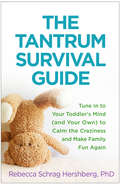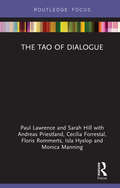- Table View
- List View
The Sweetness of Life
by Paulus HochgattererIt is Christmas in the alpine town of Furth am See and a six-year-old girl is playing ludo with her grandfather. The doorbell rings, and the old man goes to answer. The next time the girl sees him, he is lying with his skull broken, his face a red pulp against the white snow. From that time on, she does not speak a single word. Raffael Horn, the psychiatrist engaged to treat the silent child, reluctantly becomes involved in solving the murder along with Detective Superintendent Ludwig Kovacs. Their parallel researches sweep through the town: a young mother who believes her new-born child is the devil; a Benedictine monk who uses his iPod to drown the voices in his head; a high-spending teenager who tortures cats. The psychological profile of this claustrophobic, winter-held town is not reassuring - which, if any, of its inhabitants was the brutal night-time slayer of the suffering girl's grandfather?
The Sweetness of Life
by Paulus HochgattererIt is Christmas in the alpine town of Furth am See and a six-year-old girl is playing ludo with her grandfather. The doorbell rings, and the old man goes to answer. The next time the girl sees him, he is lying with his skull broken, his face a red pulp against the white snow. From that time on, she does not speak a single word. Raffael Horn, the psychiatrist engaged to treat the silent child, reluctantly becomes involved in solving the murder along with Detective Superintendent Ludwig Kovacs. Their parallel researches sweep through the town: a young mother who believes her new-born child is the devil; a Benedictine monk who uses his iPod to drown the voices in his head; a high-spending teenager who tortures cats. The psychological profile of this claustrophobic, winter-held town is not reassuring - which, if any, of its inhabitants was the brutal night-time slayer of the suffering girl's grandfather?
The Swimmer: An Integrated Computational Model of A Perceptual-motor System (Scientific Psychology Series)
by William R. Uttal Gary Bradshaw Sriram Dayanand Robb Lovell Thomas ShepherdThis research monograph describes a large programming project in which an underwater organism, capable of perceiving, learning, deciding, and navigating, is computationally simulated. The developed computational model serves as a contemporary theory of perceptual-motor performance, embodying much of what is known about human vision and some of what is known about other cognitive processes. This artificial intelligence project has substantial contributions to make to the development of autonomous underwater vehicles. It also makes a specific theoretical statement about the organization and nature of organic perceptual motor systems that may be useful to psychologists, neuroscientists, and theoreticians in a number of other fields.
The Syllable in Speech Production: Perspectives on the Frame Content Theory
by Barbara L. Davis Krisztina ZajdoAs a testament to the scope of Peter MacNeilage’s scholarly work across his 40 year career, contributions to this tribute volume represent a broad spectrum of the seminal issues addressed by phonetic and evolutionary science over a number of years. Approaches to the problems raised by attempting to understand these fundamental topics are illustrated in the broad diversity of paradigms represented in the volume. This diversity in itself is a tribute to the breadth of scholarly questions pursued by MacNeilage across his career. Chapters are arranged around five thematic areas. Two themes, Evolutionary Perspectives on Speech Production and Acquisition of Speech, reflect the major thrust of Peter’s scholarly career over the past 25 years. The other themes are reflective of the broad implications of MacNeilage’s work for scholars in disparate scientific domains. One of the strengths of this volume is the unitary focus of contributions by scientists from diverse scientific backgrounds in considering the applicability of the Frame Content Theory within their own scholarly perspectives. Thematic strands in the volume include: - Evolutionary Perspectives on Speech Production - Neurobiological Aspects of Speech - Perception / Action Relationships - Acquisition of Speech Production Skill - Modeling and Movement - Alternative Perspectives on the Syllable.
The Symbolic Foundations of Conditioned Behavior (Distinguished Lecture Series #Vol. 1997)
by Charles R. Gallistel John GibbonThe goal of this book is to persuade students of animal learning that cognitive theorizing is essential for an understanding of the phenomena revealed by conditioning experiments. The authors also hope to persuade the cognitive psychology community that conditioning phenomena offer such a strong empirical foundation for a rigorous brand of cognitive psychology that the study of animal learning should reclaim a more central place in the field of psychology.
The Symbolic Life: Miscellaneous Writings (Collected Works of C.G. Jung #53)
by C.G. JungOriginally planned as a brief final volume in the Collected Works, The Symbolic Life has become the most ample volume in the edition, and one of unusual interest. It contains some 160 items spanning sixty years; they include forewords, replies to questionnaires, encyclopedia articles, occasional addresses, and letters on technical subjects.Collection of this material relied on three chief circumstances. After Jung returned from active medical practice, he gave more of his time to writing, and some sixty papers as well as books were written after 1950. Second, recent research has brought to light a number of reviews, reports and articles from the early years of Jung's career. Finally, Jung's files yielded several finished or virtually finished papers that survived in manuscript. Volume 18 includes three longer works: 'The Tavistock Lectures' (1936); 'Symbols and the Interpretation of Dreams' (1961); and 'The Symbolic Life', the transcript of a seminar given in London in 1939.
The Symbolic Process And Its Integration In Children: A STUDY IN SOCIAL PSYCHOLOGY (Midway Reprint Ser.)
by Markey, John FFirst Published in 1999. Routledge is an imprint of Taylor & Francis, an informa company.
The Symbolic Quest: Basic Concepts of Analytical Psychology - Expanded Edition
by Edward C. WhitmontThis book explores the use and development of man's symbolizing capacities-those qualities that make him distinctly human. Dr. Whitmont describes the symbolic approach to a dream, which takes into account a symptom's meaning in reference to an unfolding wholeness of personality. He then presents the view that the instinctual urge for meaning is served by the symbolizing capacities, and that this urge has been repressed in our time. In the field of psychology, this symbolic approach is most fully exemplified by the theories of C. G. Jung. The author's contribution includes many differentiations and speculations, especially concerning the problems of relatedness.
The Symbolic Species: The Co-evolution of Language and the Brain
by Terrence W. DeaconTerrence Deacon departs from the conventional theories which state that language arose, somehow, once the human brain became large and complex enough. He argues that the brain and language developed in concert, explains how the process occurred, and draws out the compelling implications of this new view of human origins.
The Symbolic Universes of Art in Society: Representations and Transitions (Culture in Policy Making: The Symbolic Universes of Social Action)
by Katrin Kullasepp Marc Antoine Campill Lia LordeloThis volume explores the dynamic dialogue of art within society from a multitude of perspectives across the world. It highlights art as a process that is interwoven with notions of physical and metaphysical transition and represents a fundamental awareness of how art is represented and shaped through everyday social challenges. The chapters in this volume link the idea of symbolic universes with social practices of art in different societies and through different historical epochs, under the assumption that art leads the development of cultural systems underlying society. The volume looks at art that is shaped by forgotten or/and hidden perspectives. It suggests that art may have crucial, phenomenologically approachable variations that have been misunderstood in the scientific fields. The work considers art and science as complementary, instead of as counterparts/opposing forces. Divided into an introductory and four thematic parts, the volume reflects on historical signs preserved in artwork; explores the meaning behind art and the experience of cultural cultivation; delves into the dynamic shaping of creative expression through art; and, finally, looks at the artists’ own experiences of performance. This volume is of interest to researchers and students in the fields of cultural psychology, semiotics, arts and aesthetics, and cultural studies.
The Symbolic and Connectionist Paradigms: Closing the Gap
by John DinsmoreThe modern study of cognition finds itself with two widely endorsed but seemingly incongruous theoretical paradigms. The first of these, inspired by formal logic and the digital computer, sees reasoning in the principled manipulation of structured symbolic representations. The second, inspired by the physiology of the brain, sees reasoning as the behavior that emerges from the direct interactions found in large networks of simple processing components. Each paradigm has its own accomplishments, problems, methodology, proponents, and agenda. This book records the thoughts of researchers -- from both computer science and philosophy -- on resolving the debate between the symbolic and connectionist paradigms. It addresses theoretical and methodological issues throughout, but at the same time exhibits the current attempts of practicing cognitive scientists to solve real problems.
The Symptom Is Not the Whole Story: Psychoanalysis for Non-Psychoanalysts
by Daniel AraozA practical introduction to contemporary psychoanalysis that is accessible to all mental health professionals. Trained mostly in cognitive-behavioral methods and techniques, many recent graduates from psychology, counseling, family therapy, and other mental health programs have not been exposed to psychoanalysis as a vibrant, practical, and beneficial approach to human problems. In The Symptom is Not the Whole Story, Araoz introduces the functional benefits and applications of psychoanalysis for these practitioners. Focusing sharply on the unconscious and its use in psychotherapy, this no-nonsense book illustrates how psychoanalytical thinking can transform peopleâÄôs lives, thanks to the therapist's active interventions and destabilizing interpretations. Written in a vivid and clear style, where clinical examples pointedly illustrate the psychological issues at hand, this book reverses the commonly held idea that psychoanalysis requires years of treatment before showing results. Araoz's talent resides in his ability to teach mental health, marriage, and family counselors how to use psychoanalytic techniques without having been trained primarily in the discipline. All will find this book to be of particular benefit, discovering valuable guidance and applicable instructions for the use of psychoanalysis in their own therapeutic practice.
The Synesthesia Experience: Tasting Words, Seeing Music, and Hearing Color
by Maureen Seaberg"Explores a dimension of synesthesia long encountered in reports of synesthetes: its relation to mystical and artistic vision . . . fascinating accounts." —Patricia Lynne Duffy, author of Blue Cats and Chartreuse Kittens "The Synesthesia Experience will open up for you a whole new world in our universe." —The Amazing Kreskin What does blue taste like to you? A violinist sees a scarlet form when he plays a certain note; a rock star sees waves of blue and green as he composes a ballad; an actress tastes cake when she utters the word "table." Described by some as a superpower, this mingling of the senses is called synesthesia, and the people who possess this amazing gift are called synesthetes. What happens when a journalist turns her lens on a mystery happening in her own life? Maureen Seaberg did just that and spent a year exploring her synesthesia. What she learned is that synesthesia is not an idle "brain tick" but a unique ability to tap into and reveal a greater creative universe and even the divine. Join her as she visits top neuroscientists, rock stars, violinists, other synesthetes, philosophers, savants, quantum physicists, and even Tibetan lamas on her journey toward the truth. Famous synesthetes and experts interviewed in the book include Billy Joel, Itzhak Perlman, Pharrell Williams, Dr. Dean Radin, Dr. Amit Goswami, and Dylan Lauren.
The Systematic Mistreatment of Children in the Foster Care System: Through the Cracks
by Lois WeinbergThe Systematic Mistreatment of Children in the Foster Care System tells the stories of 10 children in the foster care system from diverse ethnic and cultural backgrounds and the efforts by advocates to find them permanent places to live, appropriate schooling, and other essentials they need to survive. The children’s case studies highlight the difficulties in placing and maintaining them in healthy living situations with supportive educational, mental health, and other services. The book shows how children fall-sometimes over and over again-through the "deep cracks" that exist within and between the various agencies of the multi-agency system of care that was designed to help them. Appropriate placement and services for children in foster care typically requires the coordination and collaboration of several agencies, including the juvenile court, child protective services (CPS), school districts, and departments of mental health (DMH). The Systematic Mistreatment of Children in the Foster Care System shows how these agencies frequently fail to meet their legal obligations to children in the system and what can be done to address these failures-and the outcomes they produce. The Systematic Mistreatment of Children in the Foster Care System includes: an introduction to the child protective services system the general route by which children in the United States are removed from their parents’ custody because or abuse and neglect the major components of the Individuals with Disabilities Education Act and the problems in getting foster children’s educational needs met the difficulties in securing stable out-of-home placements strategies for stabilizing home placements problems in funding for out-of-home placements strategies for advocating the removal of children from inadequate out-of-home placements legislation and practices for bringing about needed policy changes and much more Equally valuable as a professional tool and as a classroom resource, The Systematic Mistreatment of Children in the Foster Care System includes introductions to specific issues presented in each chapter; case studies that illuminate the issues presented; subsections for each case study chapter entitled "Prevention," "Intervention," "Advocacy Considerations," and "What Had Gone Wrong;" boxed items highlighting practical strategies, laws, and other relevant information; and a conclusion and summary of each chapter.
The Systems Model of Creativity
by Mihaly CsikszentmihalyiThis first volume of the Collected Works of Mihaly Csikszentmihalyi represents his work on Art and Creativity. Starting with his seminal 1964 study on creativity up to his 2010 publication in Newsweek, the volume spans over four decades of research and writing and clearly shows Csikszentmihalyi's own development as an academic, psychologist, researcher and person. Unconventional and unorthodox in his approach, Csikszentmihalyi chose the topic of creativity as a field of study believing it would help him be a better psychologist and advance his understanding of how to live a better life. The chapters in this volume trace the history of the study of creativity back to the days of Guilford and research on IQ and Jacob Getzels' work on creativity and intelligence. Firmly grounded in that history, yet extending it in new directions, Mihaly Csikszentmihalyi started his life-long study on artistic creativity. His first extensive study at the School of the Art Institute of Chicago enabled him to observe, test and interview fine art students drawing in a studio. The study formed the very basis of all his work on the subject and has resulted in several articles, represented in this volume, on such creativity-related concepts as problem solving versus problem finding, the personality of the artist, the influence of the social context, creativity as a social construction, developmental issues and flow. The main contribution to the topic of creativity and also the main concept explored in this volume, is the Systems Model of Creativity. Seven chapters in this volume discuss the development of this conceptual model and theory.
The Systems Psychodynamics of Organizations: Integrating the Group Relations Approach, Psychoanalytic, and Open Systems Perspectives
by Laurence J. GouldThis authoritative source book on the learning and creative application of the systems psychodynamic perspective defines the field, presenting the key concepts, models, and social methodologies that derive from it, together with their theoretical and conceptual underpinnings in psychoanalysis, group relations and open systems theory.
The Systems Thinking Playbook: Exercises To Stretch And Build Learning And Systems Thinking Capabilities
by Dennis Meadows Linda Booth SweeneyThis book has become a favorite of K-12 teachers, university faculty, and corporate consultants. It provides short gaming exercises that illustrate the subtleties of systems thinking. The companion DVD shows the authors introducing and running each of the thirty games. The thirty games are classified by these areas of learning: Systems Thinking, Mental Models, Team Learning, Shared Vision, and Personal Mastery. Each description clearly explains when, how, and why the game is useful. There are explicit instructions for debriefing each exercise as well as a list of all required materials. A summary matrix has been added for a quick glance at all thirty games. When you are in a hurry to find just the right initiative for some part of your course, the matrix will help you find it. Linda Booth Sweeney and Dennis Meadows both have many years of experience in teaching complex concepts. This book reflects their insights. Every game works well and provokes a deep variety of new insights about paradigms, system boundaries, causal-loop diagrams, reference modes, and leverage points. Each of the thirty exercises here was tested and refined many times until it became a reliable source of learning. Some of the games are adapted from classics of the outdoor education field. Others are completely new. But all of them complement readings and lectures to help participants understand intuitively the principles of systems thinking.
The Tailored Brain: From Ketamine, to Keto, to Companionship, A User's Guide to Feeling Better and Thinking Smarter
by Emily WillinghamA candid and practical guide to the new frontier of brain customizationDozens of books promise to improve your brain function with a gimmick. Lifestyle changes, microdosing, electromagnetic stimulation: just one weird trick can lightly alter or dramatically deconstruct your brain.In truth, there is no one-size-fits-all shortcut to the ideal mind. Instead, the way to understand cognitive enhancement is to think like a tailor: measure how you need your brain to change and then find a plan that suits it.In The Tailored Brain, Emily Willingham explores the promises and limitations of well-known and emerging methods of brain customization, including prescription drugs, diets, and new research on the power of your &“social brain.&”Packed with real-life examples and checklists that allow readers to better understand their cognitive needs, this is the definitive guide to a better brain.
The Talent Code: Greatness Isn't Born. It's Grown. Here's How.
by Daniel Coyle'Talent. You've either got it or you haven't. ' Not true, actually. In The Talent Code, award-winning journalist Daniel Coyle draws on cutting-edge research to reveal that, far from being some abstract mystical power fixed at birth, ability really can be created and nurtured. In the process, he considers talent at work in venues as diverse as a music school in Dallas and a tennis academy near Moscow, to demostrate how the wiring of our brains can be transformed by the way we approach particular tasks. He explains what is really going on when apparently unremarkable people suddenly make a major leap forward. He reveals why some teaching methods are so much more effective than others. Above all, he shows how all of us can achieve our full potential if we set about training our brains in the right way.
The Taliban's Virtual Emirate: The Culture and Psychology of an Online Militant Community
by Neil Krishan AggarwalApplying cutting-edge psychiatric theories to an analysis of online Taliban literature in four languages, Neil Krishan Aggarwal constructs a game-changing narrative of the organization's broad appeal and worldview.Aggarwal, a cultural psychiatrist, focuses on the Taliban's creation of culture, evoking religion in Arabic and English writings, nationalism in Dari sources, and regionalism in Urdu texts. The group also promotes a specific form of argumentation, citing religious scriptures in Arabic works, canonical poets in Dari and Urdu writings, and scholars and journalists in English publications. Aggarwal shows how the Taliban categorize all Muslims as members and all non-Muslims as outsiders; how they convince Muslims of the need for violence; and how they apply the insider/outsider dichotomy to foreign policy. By understanding these themes, Aggarwal argues, we can craft better countermessaging strategies.
The Talking Cure: A Descriptive Guide to Psychoanalysis
by Joseph D. LichtenbergAmong the many elementary expositions of psychoanalysis, "The Talking Cure" is unique in focusing on the actual analytic experience. Lichtenberg's approach is humanistic, demonstrating empathic understanding of the fears and hopes of the person seeking help. He provides a "feel" for what happens during the analytic voyage of self-discovery.
The Talking Cure: A Memoir of Life on Air
by Mike FederAs a kid growing up in Queens, Mike Feder identified with Scheherazade of The Thousand and One Nights: "The idea of someone having to tell a new tale every night to prevent their head getting chopped off seemed sadly familiar to me." Back then, the author's audience was his mentally ill mother, who used to stay in the house all day with the shades drawn, and then insist that her son tell her stories so that she might vicariously experience the world outside. Eventually she committed suicide, and Feder grew up to be a relentless, comic storyteller on the radio. The Talking Cure tells the story of his ridiculous jobs, first failed marriage, the string of psychiatrists, and the misery of reluctant fatherhood; throughout he maintains a kind of bizarre balancing act--hilariousness and deep seriousness, conventionality and strangeness. An ironist and a comic, Feder looks unflinchingly at his own foibles and frailties, enabling him to connect to other people's stories. The reader emerges from this book with a sense of forgiveness for the human condition, and awe at the mystery of human life. Deeply funny, and at the same time breathtakingly dark, this is a book to provoke, amuse and, in some strange way, reassure: God loves a challenge.
The Taming of Solitude: Separation Anxiety in Psychoanalysis (The New Library of Psychoanalysis #Vol. 20)
by Jean-Michel QuinodozWinner of the 2010 Sigourney Award! Psychoanalysts would argue that at the root of anxiety about loneliness, which commonly brings people into analysis, lies anxiety about separation, unresolved since childhood. When re-experienced in analysis, the painful awareness of solitude - the sense of being a separate person - can become a rich source of personal creativity. In The Taming of Solitude, Jean-Michel Quinodoz brings together the views of Freud, Klein, Hanna Segal, W.R.D. Fairbairn, D.W. Winnicott, Anna Freud, Margaret Mahler, Heinz Kohut, John Bowlby and others, presenting a comprehensive approach to the experience of loneliness, a universal phenomenon which can be observed in everyday life and in any therapeutic situation. Written with clarity and insight, The Taming of Solitude will be of great interest to all psychoanalysts and therapists.
The Tantrum Survival Guide: Tune In to Your Toddler's Mind (and Your Own) to Calm the Craziness and Make Family Fun Again
by Daniel J. Siegel Rebecca Schrag HershbergIf you are the parent of a toddler or preschooler, chances are you know a thing or two about tantrums. While those epic meltdowns can certainly be part of "normal" toddler behavior, they are still maddening, stressful, and exhausting--for everyone involved. What can you do to keep your cool and help your child calm down? Rebecca Schrag Hershberg, child psychologist and mother of two, has a unique understanding of both the science behind tantrums and what works in the heat of the moment to nip blowups in the bud. With her customizable plan, you'll learn: *Why your toddler's developing brain is hardwired for "big emotions." *What you may be doing (unintentionally) to encourage outbursts. *Ways to use structure and routines to help your child feel secure. *How to reduce tantrums at tough times of day, from wake-up to bedtime. *Strategies for managing tantrums under difficult circumstances, from travel to moving to divorce. *Ways to deepen your parent–child connection--starting right now.
The Tao of Dialogue (Routledge Focus on Mental Health)
by Paul Lawrence Sarah Hill Andreas Priestland Cecilia Forrestal Floris Rommerts Isla Hyslop Monica ManningContemporary writers position ‘dialogue’ at the heart of change theory, but what do we mean by ‘dialogue’? The Tao of Dialogue explains through story what dialogue means, and how to leverage dialogic principles in managing relationships within the workplace. Accessible and innovative, The Tao of Dialogue explains the basic principles of dialogue, defined as a way of thinking and reflecting together with others, through the story of Michael, the CEO of a company about to embark on a life-changing journey. In the first half of the book, he is introduced to the idea of dialogue by Hannah, an internal change practitioner working within the organisation. He is encouraged to engage in dialogue with those he seeks to influence, which requires him to examine his mindset and proactively make changes to the ways in which he is communicating with his team and the wider organisation. In the second half of the book Michael is assisted by Mark, an external consultant with expertise in dialogic team and organisational development, who helps him apply dialogic principles to leading his team. Engaging yet practical, each part concludes with a summary of the dialogue that has taken place and how the model can be used in the real world, as well as an overview of the journey of the organisation, team and individuals. Emerging from dialogue between seven experienced, international coaches, The Tao of Dialogue will be of interest to coaches in practice and training, as well as business leaders, HR and L&D professionals and consultants. It explains in simple terms how to transform human relationships, both one-to-one and team/group. It will also appeal to academics and students of coaching, executive development, change management and leadership development.
